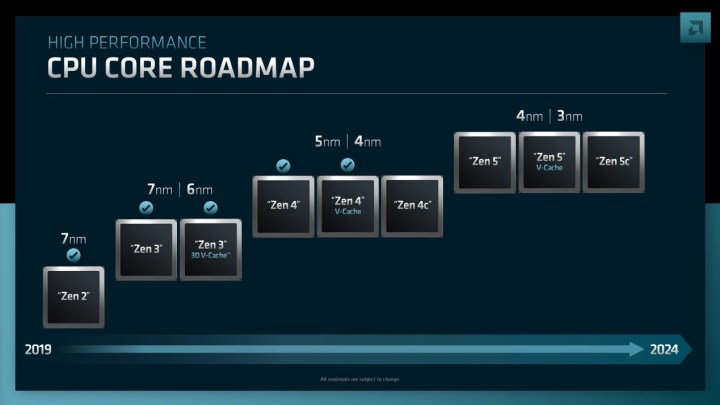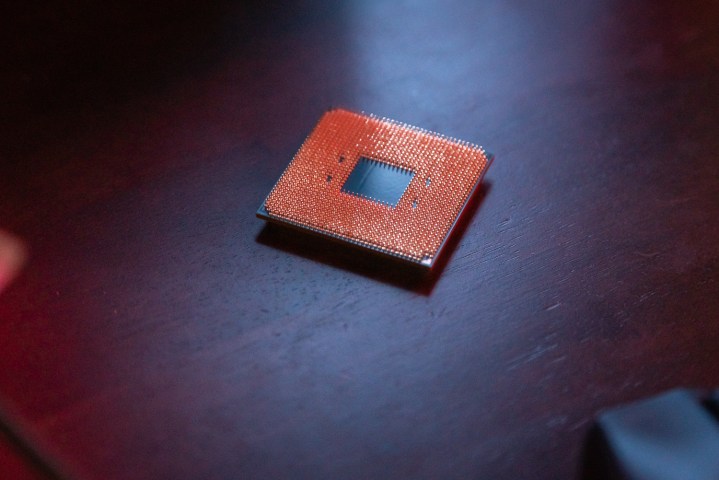Great news for AMD fans — the company has now officially confirmed that it will be bringing back 3D V-Cache in the upcoming Ryzen 7000 processors, as well as future Zen 5 CPUs.
Unfortunately, there is a catch — it seems that the technology will still not be as widespread as some may have hoped for.

Given the success of the gaming beast that is AMD Ryzen 7 5800X3D, this should come as no surprise, but it’s still a relief to hear from an official source that 3D V-Cache will make a return soon and will reappear in both Ryzen 7000 Zen 4 processors and in the next-next-gen Zen 5.
In the current generation of consumer CPUs, AMD has only used 3D V-Cache once, in the aforementioned AMD Ryzen 7 5800X3D. Built on the Zen 3 architecture and equipped with an enormous, stacked 96MB of L3 cache, it quickly became one of the best processors for gaming, made even better by the fact that it didn’t cost an arm and a leg to buy, with a reasonable $450 MSRP. That price still varies based on the retailer and rarely ever drops that low, but it’s still a fairly cost-effective high-end gaming CPU.
AMD itself has previously teased that it planned to reintroduce the 3D V-Cache technology in the next generation of Ryzen CPUs, but it never went into any greater detail. This left many enthusiasts with a lot of questions, wondering when that might happen and which processors will receive the 3D V-Cache treatment. Although today’s announcement clears things up on that score a little bit, we’re still far from knowing everything.
AMD said in a pre-brief with press that while, yes, it will bring back the stacked cache, it won’t be available on every processor. Much like it did with the Ryzen 7 5800X3D, AMD will once again target specific processors to be equipped with a much larger cache that will be released separately from the main Zen 4/Zen 5 lineup. If you’re wondering how many CPUs we can look forward to, that is still unclear.

It’s possible that AMD might, once again, pick only one processor from each range and deck it out with a 3D V-Cache. On the other hand, considering the warm welcome the Ryzen 7 5800X3D has received, it seems safe to assume that there might be more such processors coming in the future. AMD’s road map suggests that these CPUs won’t hit the shelves alongside their other non-3D Ryzen 7000 siblings. We’ll likely have to wait longer.
AMD Ryzen 7000 is the next generation of processors, said to release later this year. Alongside improved performance and specs, it brings with it a switch to a whole new socket. This means that users who choose to upgrade will also need to buy a new X670 motherboard. Knowing that the 3D V-Cache is coming back eventually, this might sway some people to wait for the next generation as opposed to buying the Ryzen 7 5800X3D right now.



